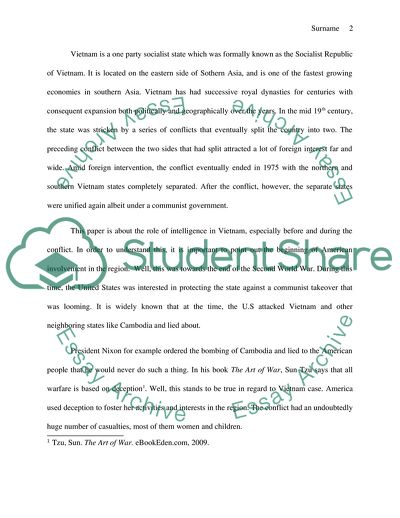Cite this document
(Role of Intelligence in Vietnam during the War Essay Example | Topics and Well Written Essays - 2000 words, n.d.)
Role of Intelligence in Vietnam during the War Essay Example | Topics and Well Written Essays - 2000 words. https://studentshare.org/military/1775796-role-of-intelligence-in-vietnam
Role of Intelligence in Vietnam during the War Essay Example | Topics and Well Written Essays - 2000 words. https://studentshare.org/military/1775796-role-of-intelligence-in-vietnam
(Role of Intelligence in Vietnam During the War Essay Example | Topics and Well Written Essays - 2000 Words)
Role of Intelligence in Vietnam During the War Essay Example | Topics and Well Written Essays - 2000 Words. https://studentshare.org/military/1775796-role-of-intelligence-in-vietnam.
Role of Intelligence in Vietnam During the War Essay Example | Topics and Well Written Essays - 2000 Words. https://studentshare.org/military/1775796-role-of-intelligence-in-vietnam.
“Role of Intelligence in Vietnam During the War Essay Example | Topics and Well Written Essays - 2000 Words”. https://studentshare.org/military/1775796-role-of-intelligence-in-vietnam.


